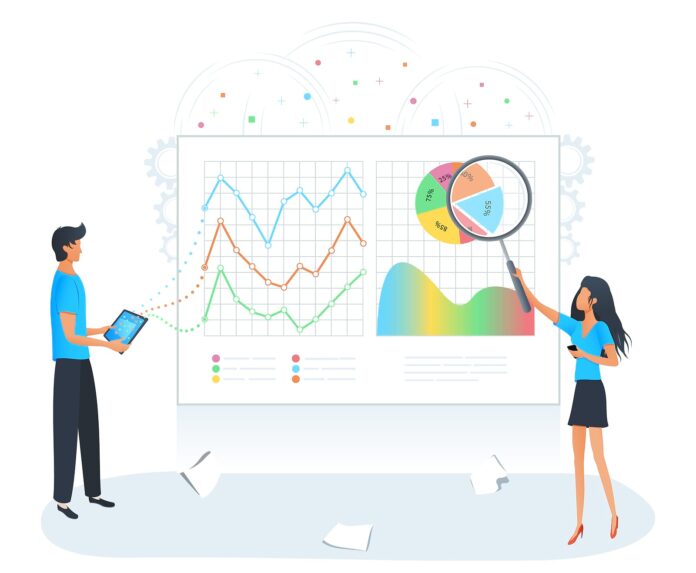Big data companies explored.
As information streams into the corporate realm from social media, web-based data, graphics, video, the Internet of Things (IoT), and sensor-based input, more data is being generated now than ever before.
Much of this data is unstructured and comes in multiple formats that make it difficult for organizations to manage and make sense of, using traditional tools and techniques. But harness it they must, since the insights gleaned from this “big data,” are now pivotal to commercial success. Big data is also the driving force behind machine learning (ML) and artificial intelligence (AI) technologies that are changing how enterprises do business.
Many organizations lack the skills and personnel needed to take full advantage of big data, analytics, and the related technologies that fuel data-driven decision making, greater operational efficiency, agility, or the rapid response capabilities and future planning made possible by techniques such as prescriptive and predictive analytics.
Many enterprises turn to big data companies to fill the skill and resource gaps preventing businesses from deriving benefit from their information reserves.
What is a Big Data Company?
A big data company is an organization that specializes in various aspects of the big data ecosystem and has a thorough understanding of big data and its business impacts. Such organizations typically provide software, services, and expertise to assist enterprises in their big data management and the deployment of big data technology. Some companies may also provide physical or cloud-based infrastructure such as big data databases, storage facilities for big data sets, or big data developer tools and platforms for the creation of custom applications and systems.
How to Define your Needs in Selecting a Big Data Company
The use of big data in business covers a broad spectrum that includes;
- Mining data to reveal new revenue streams for organizations to increase their turnover.
- Achieving a greater understanding of consumers.
- Optimizing business practices to reduce waste and costs.
- Harnessing intelligent data to develop smarter and more efficient ways of working.
These applications are numerous, and with spending on big data software alone expected to exceed $70 billion in 2020, vendors are labeling a confusing array of products and services with the “big data” tag. Understanding your objectives for big data in the context of your own organization is therefore the first step in deciding which big data company would be most suited to your needs. You’ll need to define your goals clearly, then look for an organization that can help you achieve those goals.
Among the principal big data characteristics are the three V’s: Volume (the amount of data involved), Variety (the different forms and sources of data), and Velocity (the rate at which data is generated). In light of these qualities, your capacity to handle your organization’s information flows will depend on the physical or virtual state of your big data database and data management facilities.
If you have existing investments in on-premises data solutions, you might be looking to continue hosting your big data software and solutions in your own data center. On-site infrastructure may also be desirable if your organization has to meet strict compliance or security requirements.
On the other hand, if scalability and ease of management are paramount, you may be better off with a big data company that offers cloud services. Major cloud vendors in this sector are also leading the way in artificial intelligence and machine learning research and can offer advanced features in their solutions.
Companies that offer big data tools that operate under open source licenses (such as the Hadoop ecosystem) can result in a lower total cost of ownership for your enterprise. Proprietary solutions may impose license fees and require expensive specialized hardware. However, you may need to strike a balance in purchasing support or consulting services for the set-up and configuration of some open source solutions.
Due to commercial pressures, you may need to analyze data in real-time. In this case, a big data company offering data processing architecture with streaming capabilities is a must. This will enable your organization to handle both real-time and batch data.
Things to Consider When Selecting a Big Data Company
If your business is like most organizations, you’ll already have existing investments in some form of data management and analytics technology. Since replacing that technology can be expensive and disruptive, you’ll need to find a big data company that offers solutions that can operate alongside your current tools or augment your existing software. There are several criteria that you can use in selecting that company, including:
Due Diligence
Google “big data,” and you’ll get a huge array of search results, including the names of big data companies of all types and sizes. Not all of them will possess the same level of expertise or relevance to your particular use case.
To narrow down the search, you’ll need to take a deeper delve into the choices available. Portals such as clutch.co, g2, getapp, and trustradius are a good place to start for oversight and general reviews. Besides bold claims and a familiarity with big data terminology, check to see if a particular vendor is capable of undertaking your project. Read both positive and negative reviews in detail, and look for indications that the company fulfills its commitments to see a project through to completion.
Capacity to Solve your Particular Problems
You want to find a company that has serious big data and analytics skills, as well as in-depth knowledge of your business and the industry sector in which you operate.
As an indication of their ability to address your particular concerns, ask for a trial version of the company’s solution and any insights they can provide on a given set of sample data.
Delve deeper into the details of the system architecture or infrastructure they’re proposing, their team members’ level of expertise, and the provisions they make for the management and maintenance of real-time solutions.
Ideally, you should request a test run of their product or service to enable you to assess its features, ease of use, and level of appropriateness for your business applications.
Technology Transfer
While it’s likely that your organization will have the edge when it comes to collecting data about your industry, the big data company should excel in analyzing that data and designing strategies around it. They may also be willing to assist in developing big data skills within your organization. With the right partner, this can involve the vendors working side-by-side with your staff and transferring knowledge during your big data project’s execution.
Cost Considerations
It’s important to find a vendor who can scale your investment based on the amount of resources you actually consume, as well as providing processing and storage platforms that can scale out as your big data projects grow.
Service Level Agreements (SLAs)
Your chosen big data company should provide vital support services and a robust set of service level agreements (SLAs). Important metrics to consider include speed of performance and 365/24/7 uptime. Agreements should also cover time to respond to queries, time to resolution for open production issues, and time to restore disaster recovery.
Compliance Issues
To ensure that the company meets the required governance levels for security, data handling, and other regulatory issues, you should ask for their current IT and financial audits. The IT audit should confirm that the vendor achieves the level of security and data protection you expect. Their financial statements will speak to the present and future viability of the company.
5 Big Data Companies We Think You Should Consider
One of the more compelling big data statistics projects the market’s value to reach $156 billion by 2026. Among the big data companies fueling this drive are the five organizations we shall now highlight.
1. Prolifics
A global digital transformation company with expertise in data, analytics, cloud, DevOps, digital business, and quality assurance across multiple industries, Prolifics provides expert consulting, engineering, and managed services.
With over 1,200 employees spread across 11 offices in North America, India, and Europe, Prolifics offers data management services with data scanning, data integration, and data governance. The company provides business and predictive analytics using advanced artificial intelligence and machine learning, and the Prolifics cloud architecture services include the design and implementation of big data cloud infrastructure and architecture. Prolifics cloud migration services assess your current systems, modernize legacy technology, and develop a cloud migration strategy and implementation roadmap.
2. Clairvoyant
Clairvoyant is a leading multinational data science and engineering firm specializing in the end-to-end development and deployment of Artificial Intelligence(AI) and Machine Learning(ML) solutions.
The Clairvoyant Managed Services team takes responsibility for setting up and managing the day-to-day operations of big data management. The company serves multiple Fortune 500 clients in the fields of big data, data analytics, cloud, Artificial Intelligence, Machine Learning, and other disruptive technologies.
3. ScienceSoft
ScienceSoft is an international IT consulting and custom software development company based in McKinney, Texas. The company offers a range of services, including big data consulting, implementation, support, and big data managed analytics services.
ScienceSoft implements big data solutions with a selection of architecture components, including a data lake, a data warehouse, ETL (Extract, Transform, Load) processes, OLAP cubes, reports, and dashboards. Support services comprise big data solution administration (updating software, adding new users, handling permissions), big data administration (data cleaning, backup, and recovery), and continuous monitoring.
4. Xplenty
With a team of top data experts, engineers, and DevOps specialists, Xplenty is a cloud-based data integration, ETL, and ELT platform. Xplenty aggregates all data sources and lets users create simple, visualized data pipelines to their data lakes.
Xplenty’s big data processing cloud service can process structured and unstructured data and includes solutions for marketing, sales, support, and developers.
5. IBM
Currently, the largest vendor for big data-related products and services, International Business Machine (IBM), is an American company with its headquarters in New York. IBM Big Data solutions provide features for data storage, management, and analysis.
IBM’s Big Data Solutions include the Hadoop System for data storage (structured and unstructured data), Stream Computing for real-time data processing, Federated Discovery and Navigation (which helps organizations to analyze and access information across the enterprise), and IBM Streams (an Internet of Things or IoT service that enables organizations to capture and analyze data in motion).





